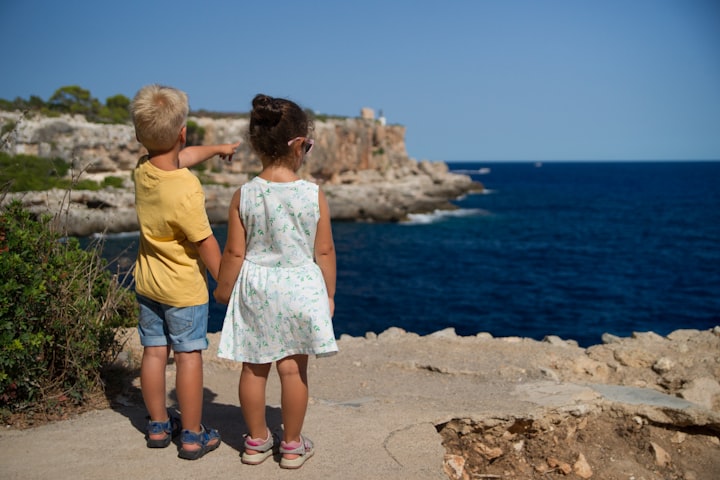The Role of Play in Early Childhood Education
Learning Through Fun

Play is the universal language of childhood, and it holds immense power in early childhood education. It is through play that young children explore, experiment, and make sense of the world around them. In this article, we will delve into the essential role of play in early childhood education, showcasing inspiring insights and real-life examples. By understanding the significance of play-based learning, we can create engaging and effective educational environments that foster children's holistic development. Let's embark on a journey where learning and fun seamlessly intertwine, paving the way for lifelong curiosity and a love of learning.
The Role of Play in Early Childhood Education: Learning Through Fun.
The transformative power of play based learning
Play is not merely a form of entertainment; it is the foundation for learning in early childhood. Through play, children develop critical skills such as problem-solving, creativity, communication, and social interaction. For example, when children engage in a pretend play scenario, they learn to negotiate, take turns, and express their ideas, fostering their social and emotional development.
Hands on exploration: Igniting curiosity through play
Hands-on exploration is at the core of play-based learning. It allows children to actively engage with their environment and construct their understanding of concepts. Provide opportunities for hands-on exploration through sensory activities, building blocks, puzzles, and nature exploration. For instance, when children play with building blocks, they learn about shapes, balance, and spatial awareness.
Unleashing creativity through play based learning
Play nurtures children's creativity and imagination, unlocking their potential for innovation. Encourage imaginative play and artistic expression through storytelling, dress-up, role-playing, and art activities. When children engage in pretend play, they develop narrative skills, problem-solving abilities, and the capacity to think outside the box.
Enhancing language development through play based activities
Play provides a rich context for developing language and communication skills. Encourage children to engage in conversations, storytelling, and dramatic play. For example, when children engage in a tea party, they practice turn-taking, vocabulary development, and expressive language skills, fostering their communication abilities.
Improving motor skills through play based education
Play-based learning promotes the development of fine and gross motor skills. Offer activities that involve movement, such as dancing, climbing, or playing with manipulatives. When children engage in outdoor play, they refine their balance, coordination, and spatial awareness, laying a foundation for physical development.
Cultivating problem solving skills through play based learning
Play encourages children to become natural problem solvers and critical thinkers. Provide puzzles, construction sets, and open-ended materials that allow for experimentation and problem-solving. When children encounter challenges during play, they develop strategies, persistence, and the ability to think critically.
Promoting social emotional skills through play based education
Play-based learning fosters social and emotional development by providing opportunities for collaboration, empathy, and self-expression. Encourage cooperative play, group activities, and discussions that promote emotional awareness. When children engage in collaborative play, they learn to navigate conflicts, regulate emotions, and build meaningful relationships.
The role of play in early childhood education cannot be overstated. Through play, children develop a wide range of skills, from problem-solving and creativity to social and emotional intelligence. By embracing play-based learning, we create engaging and effective educational environments that inspire children to become lifelong learners. Let us cherish the power of play, where laughter and curiosity become the guiding forces that shape the brilliant minds of our youngest learners.
Please if you find this piece interesting,please consider leaving a like ,comment or even a tip .your support means a lot to me as writer!
for more info call or text me on :[email protected]/+25078218364
for the tips use Western Union :0782183364
Thanks!
About the Creator
MUGISHA Rabsson
Mugisha Rabsson is a seasoned writer dedicated to helping individuals navigate the complex world of personal finance,life,families,nature,health,nutrition,technology,caring,...






Comments
There are no comments for this story
Be the first to respond and start the conversation.